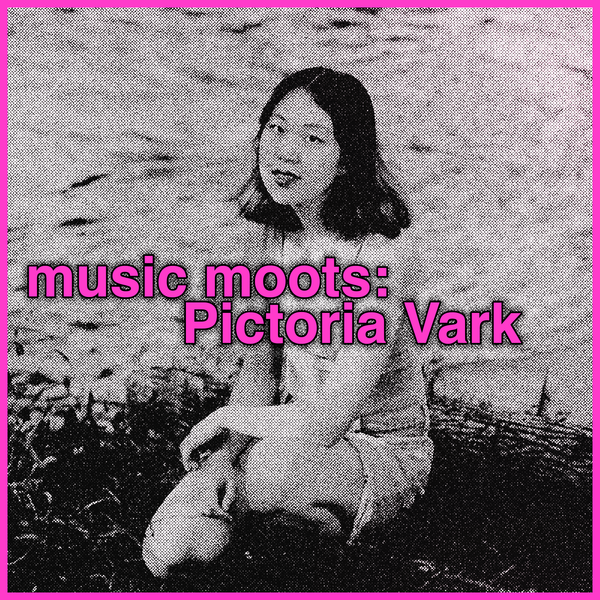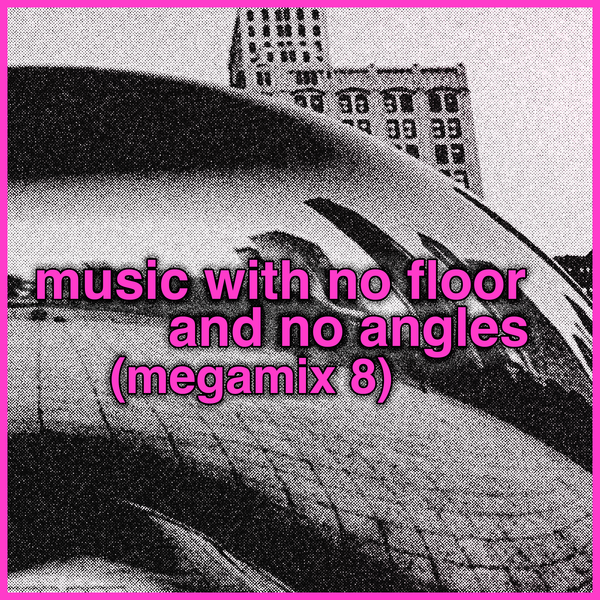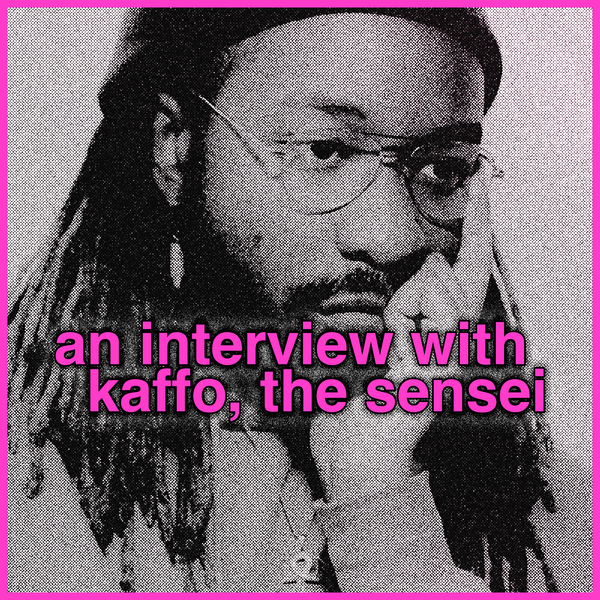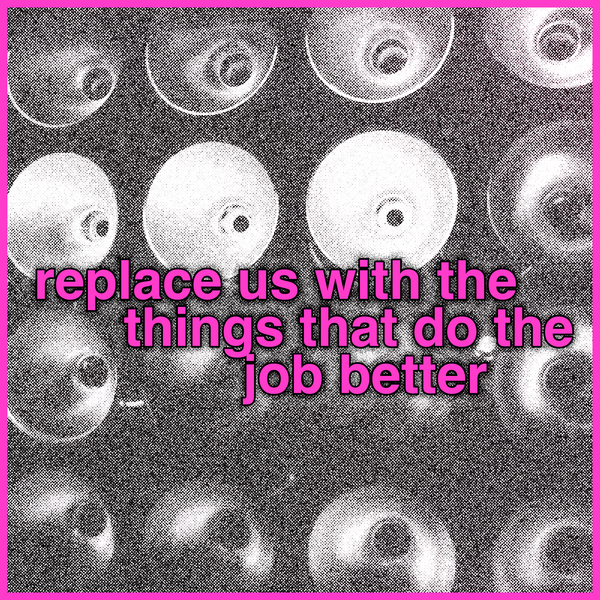you must become, yourself, annoying: revisiting the music of The Blood Brothers
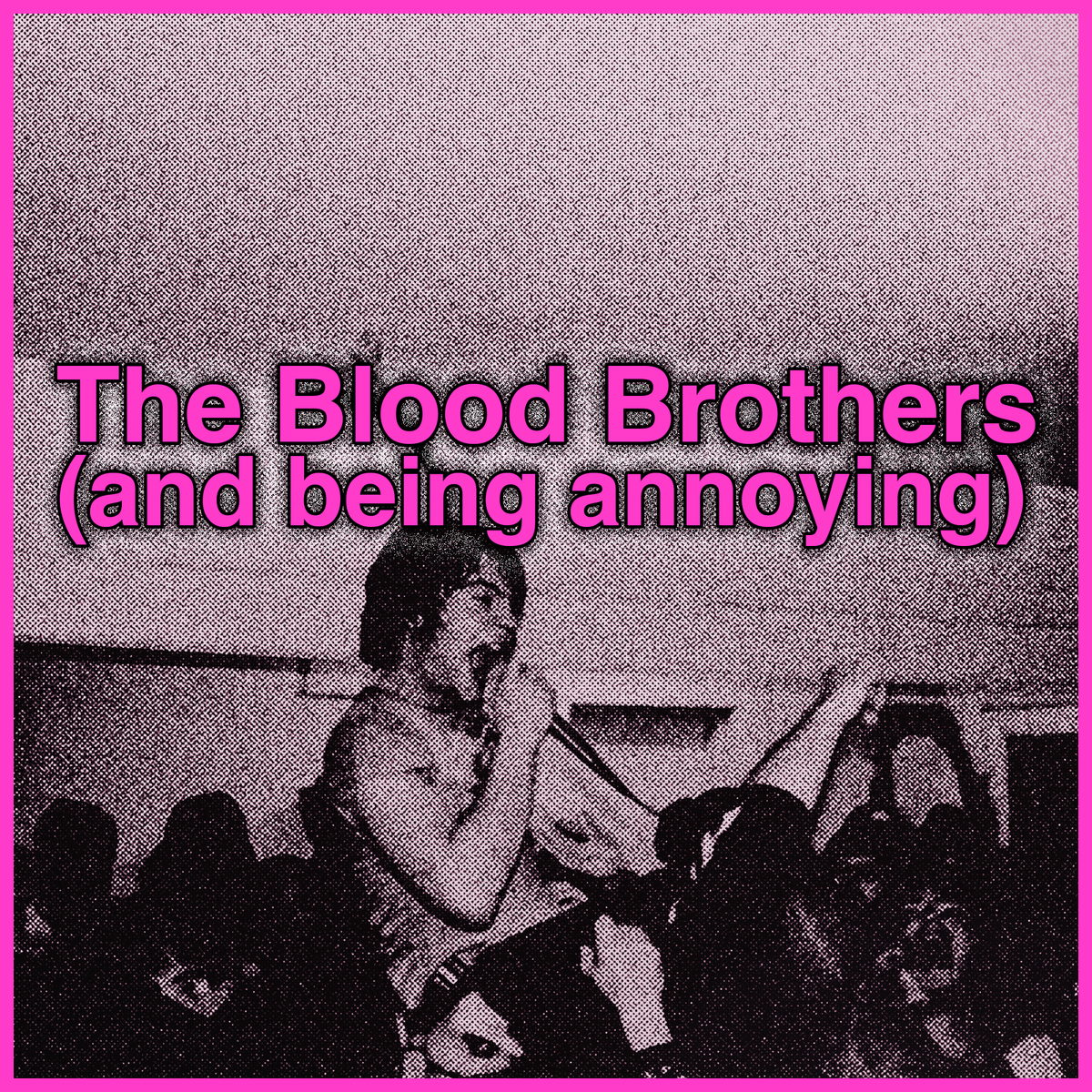
Oh I'm so excited about this essay, I don't want to dilly dally in the intro. Today we've got a guest post that marks the return of Tim Jones, who last appeared 'in the pages of I Enjoy Music' to connect the dots between the Swedish band The Cardigans and the music in the horror video game Silent Hill.
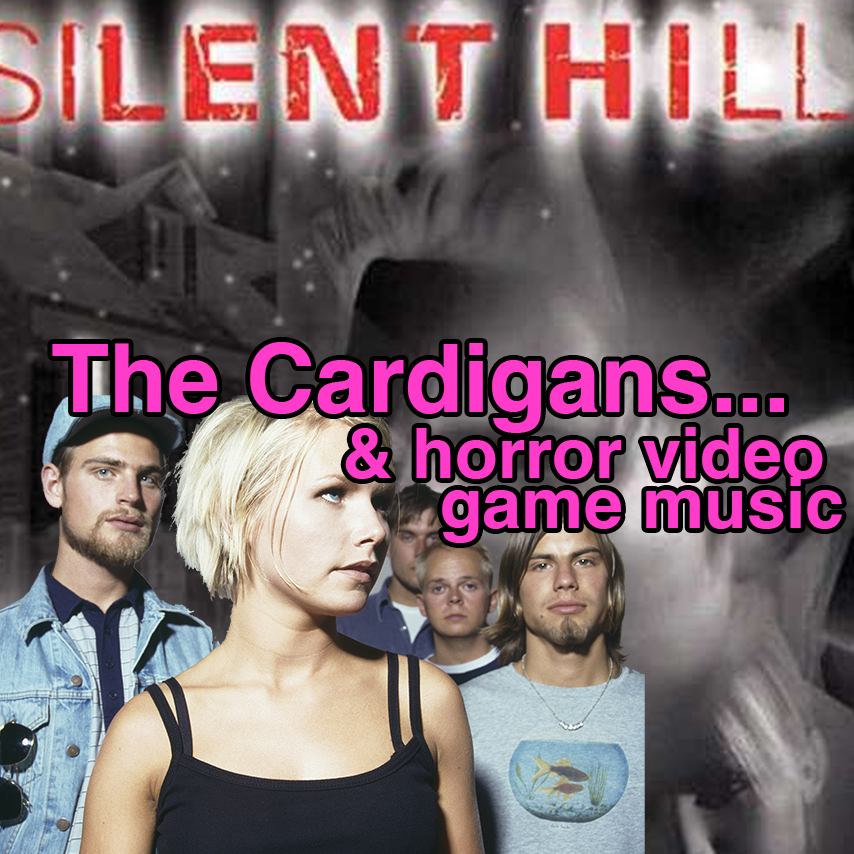
Tim is back with a vengeance, this time tackling titans of the "white belt" / "sasscore" scene The Blood Brothers—who formed in suburban Seattle in 1997, played music for ten years, then parted ways—and tying their music to the current moment in a fascinating way. Read on...

This is going to be about being annoying.
Being annoying is one of the trademarks of innovators across human history, from Martin Luther to 100 gecs. I know from experience as a veteran of teaching college freshman composition courses that it’s really annoying to start an essay by dubiously trying to say that whatever you’re talking about is an essential component of the character of humanity by tying it to a long history that really has nothing to do with the subject of said essay.
In this case, the subject of the essay is the ‘00s Seattle band The Blood Brothers, but they won’t appear until long after I explain a particular history that sets up my point about the band. Because to explain why the Blood Brothers are the exact nexus of what was “annoying” in their time, I have to explain how truly popular rock music’s final era defined itself almost entirely by doing things everyone hates now.
In the Bush years, the idea of caring about politics was invented by Green Day in 2004 with the release of their album American Idiot. This came as a powerful blow to the concept of being cool, which had been invented in 2001 by The Strokes’ Is This It. American Idiot set the tone for what mainstream rock was going to be until the genre finally died as a popular concern for everyone except curiously photogenic Nevadans: grandiose, theatrical, and completely convinced of its importance as serious art.
In some way, this may have been a reaction to the dominant strain of cool diffidence characteristic of New York City rock music in the time of indie sleaze, a city vs. suburbs dialectic played out in artistic intention. On almost every song on Is This It, The Strokes are coolly breaking up with someone in Manhattan for being boring; out on Long Island, Taking Back Sunday are either going to kill their girlfriends or kill themselves in front of their girlfriends. Everything happens so much, as a famous horse once said.
But American Idiot and its children solidified the commercial potential and thus the paradigm for trying really, really hard. Bands started swinging beyond the fences; My Chemical Romance’s The Black Parade was recorded in a haunted mansion while Gerard Way convinced himself he had cancer and the band hired Liza Minelli to sing on the heavy-waltz-polka track “Mama.” Thrice put out an album thematically inspired by and named after a concept from a Thomas Pynchon novel (and not one of the two that people have heard of!). My eternal-teen-favorite band AFI released their biggest album Decemberunderground very intentionally on June 6, 2006, the darkest and most goth day of the millennium, promoted by the video for “Miss Murder” which I can only describe as “what if Hitler was in Final Fantasy.” Somehow Slayer missed out on releasing their record Christ Illusion on 6-6-06 which seems like a real faux pas for them.
This is all to say it was a time when rock bands were convinced of their central importance to culture at large and their positions as critics of such, in much the same way stand-up comedians were for most of the 2010s. Thankfully, the contours of this particular bunch of narcissistic drug addicts and sex pests’ output are far more interesting.
One of the things you saw a lot of in ‘00s rock was cabaret as an aesthetic influence: Black Parade’s imagery and literal guest appearance from the star of Cabaret; the existence of the Dresden Dolls; probably too many total music videos to mention but “Mr. Brightside,” “I Write Sins Not Tragedies,” and “Float On” are the best remembered. Perhaps this all sprang from 2001’s Moulin Rouge, directed by Baz Luhrmann—who come to think of it, exists as yet another point on the compelling/irritating axis I’m working toward describing as “annoying.” Anyway, everyone who dabbled in cabaret looked like a real idiot comparing their present to a decadent era defined by a massive economic crash in the wake of a disastrous war, because those events did not happen during the Bush presidency.
When I was a youth we had the concept of being “awkward,” which was generally considered a funny, if not necessarily positive, way of being out of line with expectations of a particular milieu. Due to the deleterious effects of the film 500 Days of Summer on culture in the intervening years, the kids have now come up with the concept of “cringe,” which describes the same thing as “awkward” except with the additional connotation that, instead of deserving your own TV show, you should be executed.
Cringe is essentially a criticism of earnestness, which has really taken a beating in the last two decades. Being annoying is an ingenious technique to mitigate cringe, a way to ironize what would otherwise be a transparently sincere expression of something dorky.
The present masters of this technique are of course 100 gecs, who have the same power to produce the cilantro-like genetic love-or-hate reaction in people as the Blood Brothers once did.
Take for example their brilliant song “I Got My Tooth Removed,” which is textually about how unpleasant it is to get a tooth removed, but musically an absolutely perfect ska-punk song complete with an exact recreation of the same guitar tone from every Bosstones and Reel Big Fish record, belying a loving familiarity with the source. “Don’t ask a bloodhound how he knows the smell of blood,” a friend of mine from Louisiana would say about this type of thing. The silliness of a song about how it sucks to get a tooth pulled allows distance from the sincere expression of the uncool feeling “I like ska music sometimes.”
The Gecs combine aspects of musical extremes both uncool (emo, third-wave ska) and avant-garde (the mix of trap, radio pop, and heavy music we now recognize as hyperpop) to create something that confounds listeners who are narrowly fans of these individual styles, but brings a special idiosyncratic joy to people for whom it works (likely enhanced by the distaste for it that other people have).
That final principle—delighting in distaste—is the joy of being annoying, what a person who studied American literature for a decade might refer to as Edgar Allan Poe’s concept of “the imp of the perverse,” but I wouldn’t do that to you.
Thus, finally, The Blood Brothers. To the jaded, the band is a collection of things that are “a little much:” two singers, one of whom has a really shrill voice; noisy post-hardcore with the occasional Latin influence by way of At The Drive-In; aesthetically all-in on many of the signifiers of “the scene,” like the Crimes cover’s pastel pink and blue colors, and the famous white belts holding up their pants that somehow are the basis for an entire microgenre which is either called sasscore or white belt.
I’m already annoyed just writing about this.
Yet, I suppose it’s as good a term as any to describe the immediate reaction most people feel when they hear what is undoubtedly the band’s sonic signature: Johnny Whitney’s truly nutso piercing wail. Not to give lower-pitched singer Jordan Blilie and the rest of the band short shrift, but if there’s one thing that makes a Blood Brothers song immediately identifiable it has to be that voice. When the band reunited to play a few more shows in 2014, Seattle Weekly’s interview with him opened with the phrase “Johnny Whitney is biologically male, but.” It’s pretty sassy, I guess. I could attempt a Pitchforkian metaphor here like “he sounds like Madonna being tortured after four shots of Drano,” but unlike the fantastic music of the Blood Brothers, describing what music sounds like in words can and should be left in the past. Every song on earth is so easily accessible now that you can just hear it instead of reading some idiot who literally has a master’s degree in Popular Culture describe it.
(how convenient!)
So now that you’ve heard a Blood Brothers song if you hadn’t before, you get it. "Love Rhymes With Hideous Car Wreck” is unusually catchy for one of their songs but does encapsulate their whole thing pretty well: flamboyant, noisy post-hardcore fronted by two extremely skinny guys wearing the tightest clothes available. If you were most music fans in the ‘00s, the look alone would immediately identify this band as targets of scorn. And then there’s the sound, the very teen-goth title “Love Rhymes With Hideous Car Wreck” and the song lyrics serving as an uncharacteristically transparent (for this band) tale of justice for a jilted lover visited by automotive catastrophe.
This is all quite familiar territory. The Blood Brothers lyrically tend to operate in areas that are easily recognizable as emo concerns. There’s a preoccupation with the collision of the innocent and the lurid. They’re constantly smashing together topics that evoke childhood—there’s a preponderance of references to riding ponies and going to the zoo in the BB oeuvre, for example—and the horrors of the adult world (almost every one of their songs is about people getting killed or sexually exploited). The grotesque and the abrasive are just as sincere as Ted Lasso or whatever, just from the negative perspective. They’re screaming about violence and cruelty because they think these things are bad, like people should. It’s unusual that they’re concerned with literal mutilation rather than emotional mutilation, but these things aren’t so far apart in songs.
There’s a fetishized retributive violence against the morally weak common to plenty of other songs about car crashes from contemporaries; I couldn’t ask for a better example than Brand New’s “Seventy Times Seven” and Taking Back Sunday’s “There’s No I in Team,” songs which use the same lyrics about wishing someone else would get killed while drunk driving. It’s important to note the function of having an omnipotent third party doing the killing: If I kill you for wronging me, I’ve also now done something bad, but if God does it, then I have proof I’m better than you and you deserved it. But one of the reasons I love Blood Brothers so dearly is that they elevate this to a literary position: the narrative voices of every Blood Brothers song aren’t the people their songs are happening to, they’re divine judges of the situations they observe.
What I've been trying to say in what, to this point, might seem like a long list of backhanded compliments at best is that The Blood Brothers, instead of making music that lists the problems of their world and says “look at how bad these problems are,” creates a world where those problems get solved. There is a glorious justice I’ve always loved in lines like “Come a little bit closer to the mic and tell us what you miss more, your desk or the hungry sky” from “Ambulance Vs. Ambulance”; I can imagine various bosses being forced to publicly admit that they like working more than their own freedom, in a sort of trial where, in line with the rest of the song, they get turned into mulch for thinking this. And it’s all delivered in a sonic package that sounds like it came from the version of hell for musicians with unusually versatile chops.
I’d like to talk about a particular song, “We Ride Skeletal Lightning,” from the band’s swan song Young Machetes. This was also their major label debut. Rock music was in such a boom at this time that The Blood Brothers got signed to a major. A guy in a suit in a penthouse heard this and saw dollar signs!
I love working at the post office in Columbus, Ohio and ripping up absentee ballots that voted for Trump
I have to give a special mention to the non-singing members of the band here, Cody Votolato on guitar, Morgan Henderson (later of Fleet Foxes, somehow) on bass, and Mark Gadjahar on drums. The singers drive the melodic progression of the songs, which often turns the entire rest of the band into the rhythm section. This is pretty unusual in heavy music, which tends to pair melodic guitar with screamed, relatively amelodic vocals. Votolato has an especially difficult task—with two vocalists, their voices simultaneously cover both ends of the range of the guitar, and I have to assume it's an awareness of this that led him to be incredibly inventive on all the Blood Brothers records. He avoids playing chords as much as possible, which makes them hit so much harder when he finally does play them, and when he's not, there's always something rhythmically interesting going on. In this song there’s the brilliant decision to just sit on two treble notes that are a half-tone away from each other, creating a constant tension that also gives the singers a ton of room to do the dynamic interplay that is the soul of the band.
You can pretty easily tell that “We Ride Skeletal Lightning” is about the idea of commodifying and normalizing violence to the point that it becomes boring. The sound is repellant because the subject is repellant. If most music about violence has a hamartia, it’s that it makes violence seem really fucking cool. The riff at the end of One by Metallica? Dude. Fuck The Police? Hard In Da Paint??? But coolness is not a concern for The Blood Brothers. One of the great joys of listening to them is overcoming the sense that the music is essentially daring you to like it. You must release prejudicial disdain for the signifiers external to the music and become, yourself, annoying.
To be fair, concerns about the mainstreaming of video of real-life killings were commonplace to the point of banality at the time. If you were unfortunate enough to be a teenager in the early ‘00s, somebody probably made you look at the beheading of Daniel Pearl. But that’s just every few hours now, isn’t it? Instead of being concerned about this, we’ve accepted it. How much real-life war footage have you seen today just scrolling through one of the four websites left? “I got shot in the face/ It’s all on videotape/ So come on, watch the blood/ It’s pouring commercial-free” isn’t a hysterical exaggeration anymore, which is what might have made it unpalatable in its time. But if it’s cringe now, it’s because it seems to be a complaint about which nothing can be done. The unorganized collective aim of the last days of blockbuster rock music to stop a pointless, evil war and the mainstreaming of cruelty ultimately failed, and I guess that’s what killed it. Green Day even made a second concept album about all the problems, and they still didn’t get fixed! But in the world of The Blood Brothers, justice still gets done, and you get to feel like you’re in on it. In a fallen world that has rendered you individually powerless, it feels pretty good to be annoying.
Thank you Tim! Do you want to write a guest post for I Enjoy Music? Email meeeee...ienjoymusicblog[at]gmail[dot]com. Thanks for reading the blog. If you like it, tell a friend.


